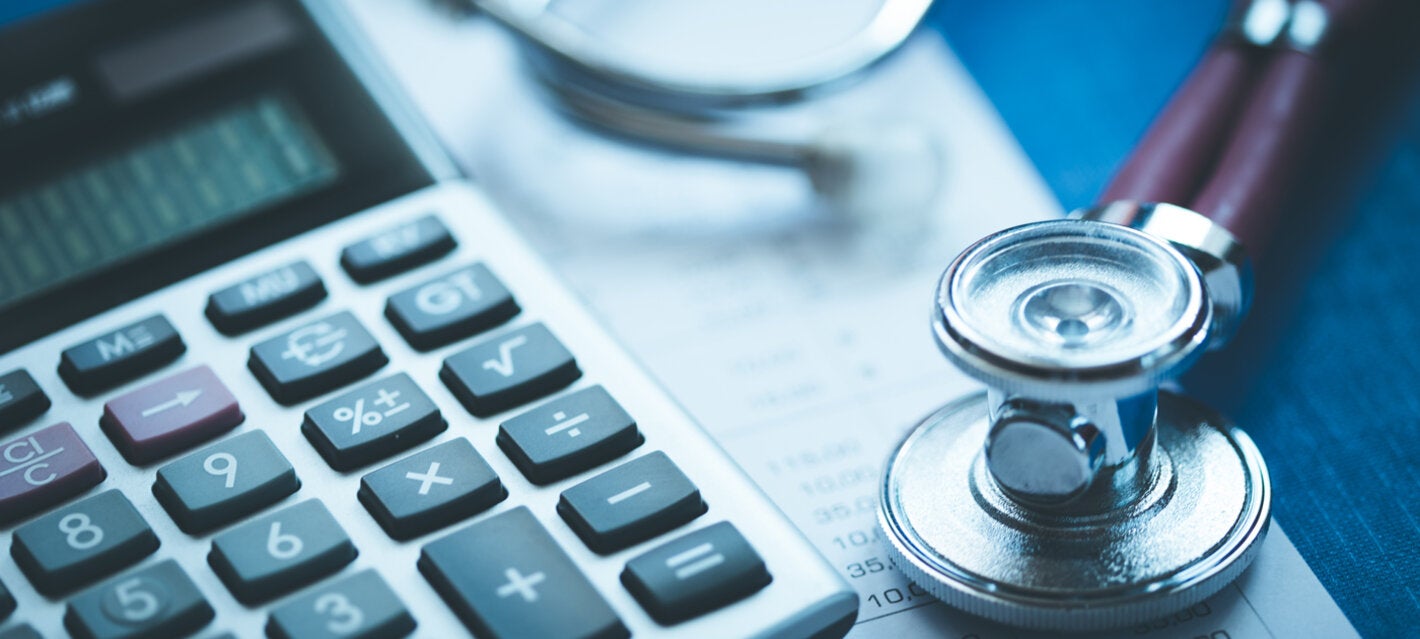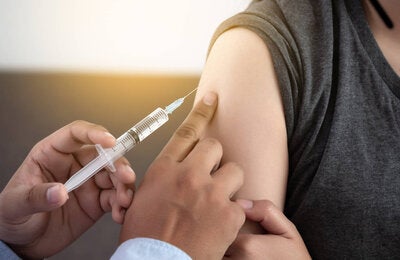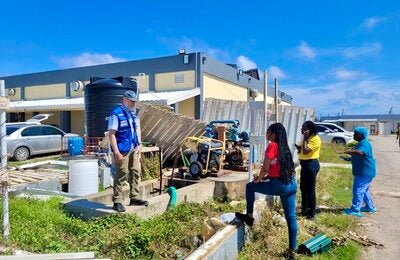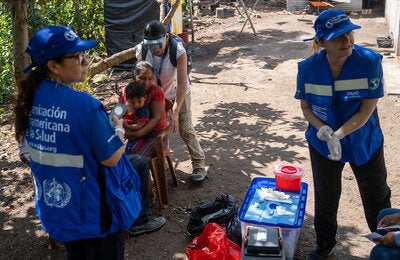
Washington DC, 18 March 2021 (PAHO) - The Pan American Health Organization (PAHO) and the United Nations Conference on Trade and Development (UNCTAD) organized a virtual seminar within the framework of the technical cooperation project to strengthen consumer protection in the provision of consumer services health after the COVID-19 pandemic.
Representatives from the ministries of health, the consumer protection and social protection agencies, and the policy-making bodies of the Member States, as well as the United Nations regional economic commissions (CEPA, ESCWA, ECLAC); PAHO; Caribbean Public Health Agency (CARPHA) and UNCTAD participated in the event.
Participants discussed the consequences of the pandemic on the provision of health services in the Region, and the role of consumer policy in improving the well-being of consumers in this key sector.
“Prior to the pandemic, the Region was already one of the most inequitable in the world and even more in terms of access to health, with health systems segmented in their financing, fragmented in the organization of their services and with limited resources to finance fundamental elements such as human resources, infrastructure, technology, and management. In this context, the pandemic also revealed great weaknesses in the capacities of the countries to lead processes of substantive changes, reform, regulation, and essential public health functions, which are necessary for a health system that is strong, resilient, and can face these situations," said Amalia Del Riego, Chief of the Health Services and Access Unit at PAHO.
This initiative prompts the organization of a series of webinars with representatives of the United Nations Regional Economic Commissions (RECs) to stimulate discussions among high-level stakeholders in Member States on how to strengthen social protection policies to "leave no one behind" during the pandemic and help a faster recovery through consumer protection and social protection policies.
The technical cooperation project has been inspired by the words of the UN Secretary-General, António Guterres, who during the early days of the pandemic said: “We simply cannot return to where we were before COVID-19 struck, with societies unnecessarily vulnerable to crisis. We need to build a better world”.
In the first stage of the project, a report was prepared to establish a wider range of consumer protection functions that are related to health services. This document aims to establish the links between social protection and health.
Del Riego highlighted the importance of linking these two fields, focusing on universal health access and coverage. “Universal means universal, and health is a universal right, therefore, an inalienable responsibility of the Member States, as reflected in the values present in the Strategy for Universal Access to Health and Universal Health Coverage such as the right to health, equity and solidarity, which are expressed in the four strategic lines that are oriented towards addressing the main challenges of health systems.”
At the closing of the event, Del Riego shared three key ideas to carry out this initiative. “The first is to link universal health with social protection, understanding that this includes the universality of health. The second element, essential at this time, is to increase efforts to achieve substantial transformations of health systems that can address the problems that countries have, such as barriers to access, segmentation of financing, and fragmentation of services. Finally, that these systems transformation processes incorporate the strengthening of essential public health functions (EPHF), as expressed in detail in the recent PAHO publication.”
This event was the first in a series of virtual seminars that seeks to achieve a greater understanding of the potential area of cooperation between consumer protection agencies and health authorities. It also seeks to achieve a better understanding of the common objectives of both policy areas, as well as promoting cooperation between public bodies.



